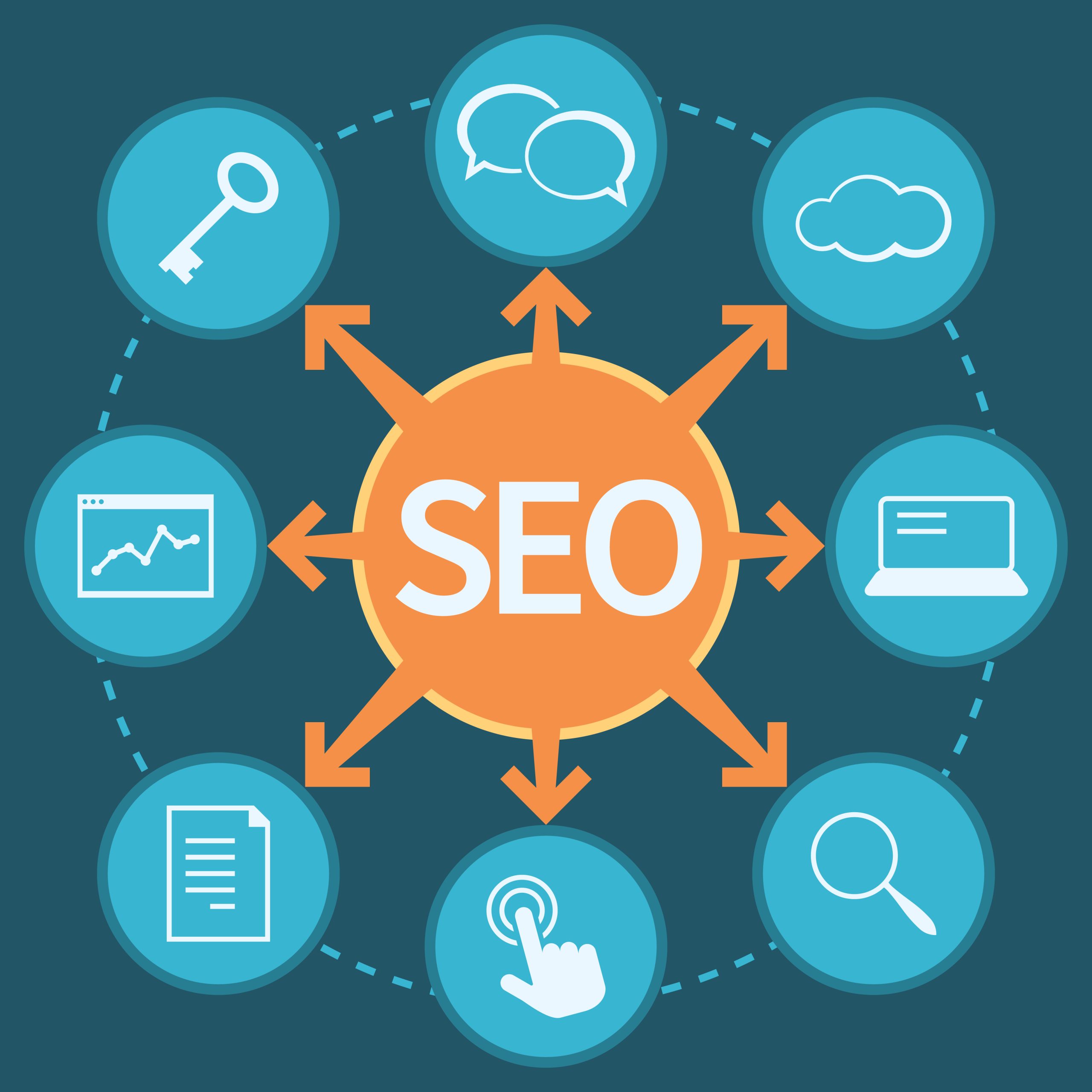What is SEO for marketing?
SEO for marketing is a way of improving a website’s visibility to people who search for products and services using internet search engines. The term SEO stands for search engine optimisation. An SEO-optimised website or web page appears higher on the results page that a search engine generates after a user types in a query. The higher it appears, the more people see it. As a result, you get more organic traffic to your website, and more people are likely to take action there, such as making a purchase or completing a form.
Search engines process billions of search queries each day. By using SEO tactics to improve their site’s ranking and visibility on SERPs, marketers reach this large and valuable segment of consumers more easily. SEO is an ongoing process rather than a one-off activity. Although it usually takes time for SEO to work, it generates positive long-term results in increased brand awareness, website traffic and online conversions. Importantly, you may use tools to track and measure your results, allowing you to quantify the impact of your SEO activities and your return on investment.
How do search engines work?
There are several major search engines, and they each use different algorithms to analyse and rank websites and web pages. These algorithms change frequently. Their goal is to return results that best satisfy a user’s search query. Search engines work by following these three key steps:
-
Crawling: Search engines use bots to ‘crawl’ web pages, which involves identifying pages and recording information about them. They look for new web pages and determine whether older pages have updated or changed since their last visit.
-
Indexing: If a search engine decides that a crawled page contains unique and useful content, it places it in an index. Low-quality content or content that the search engine was unable to crawl is unlikely to appear in the index.
-
Ranking: The search engine analyses the pages in the index and uses numerous ranking signals or factors to determine how to position them on the SERP. Marketers may improve their page’s ranking by optimising on-page, technical and off-page elements of their websites.
On-page SEO
To improve your ranking in SERPs, optimising your website’s on-page or on-site elements for search engines is essential. To do this, focus on these key areas:
Content
To rank highly, ensure you upload quality content to your site that’s useful to searchers and answers a query or solves a problem they might have. High-quality content ranks higher than low-quality content in search engines. Similarly, new content ranks higher than old content, so post fresh content frequently and update existing content regularly. It’s good practice to create and maintain a content calendar. This helps you schedule and organise an ongoing stream of new, updated or refreshed content for your website. Your content may be in multiple formats, including text articles, videos, podcasts or infographics.
Keywords
Keywords are one of the main elements of SEO. Marketers first identify keywords that closely match user search queries before creating content that answers these queries. A page is likely to rank higher in search engines if the page’s content contains the same keyword as the search query several times. Use keyword research tools to identify the most popular keywords and determine how often people search for them. Investigate the keywords your competitors tend to use. If some are overused, consider choosing a different but related term to improve your ranking.
HTML
Another way to improve your website’s on-page SEO is to optimise its HTML elements. To do this:
-
Include your main keyword in key sections like the page’s title tag, meta description, alternative (alt) text and URL.
-
Ensure the meta description is engaging, falls within the specified character limits and entices readers to click through to your page.
-
Use heading tags, from H1 to H6, to break up the content and divide it into logical, meaningful sections.
Technical SEO
To improve your ranking, you may also improve many technical aspects of your website. You may either do this yourself or ask a web developer to help you. Your goal with technical SEO is to make your site easier for search engines to crawl and understand. Focus on these core areas:
Site map
Be sure to create and post a well-organised site map in XML format and ensure it’s up to date. A site map is a list of all the pages on your website. This file helps search engines understand your website’s structure and identify and crawl your web pages. If you don’t include a site map or upload one that’s outdated or incomplete, a search engine may miss key pages of your site and fail to index them.
Site speed
Look for ways to improve the speed of your website. Websites that load quickly tend to rank higher on SERPs. Aim for your web pages to load in two to three seconds or less. To improve site speed, you may take various actions, such as compressing file and image sizes and minimising the inclusion of external scripts.
Mobile friendliness
With more and more searches taking place on mobile devices, it’s essential that your website is mobile friendly and that users of smartphones have a pleasant experience when visiting your site. Mobile friendliness is one of the factors search engines use to rank websites. To ensure your site is mobile friendly, ensure the text is easy to read, buttons are easy to click and your site generally looks good on smaller screens.
Site security
Website security is another important ranking factor. Search engines are unlikely to direct visitors to sites they consider unsafe. To secure your website, install an SSL certificate and use HTTPS with your domain name.
Off-page SEO
You may also use off-page or off-site SEO techniques to improve your website’s ranking in search engines. These activities happen outside of your site but still affect its reputation. With off-page SEO for marketing, focus on these elements:
Backlinks
A backlink is a hyperlink on another website that links to a page on your site. Pages with a high number of quality backlinks typically rank highly in results pages, as search engines consider these pages useful and trustworthy. To get more backlinks, create high-value content that other sites want to link to and ask industry websites and directories to link to your site.
Domain and page authority
Domain and page authority are search engine ranking scores, ranging from one to 100, that predict how well a website or web page is likely to rank on a results page. You may use SEO tools to calculate these scores. Search engines consider websites with high domain and page authority scores to be reputable, so they often rank higher on SERPs. One way to improve your domain and page authority is to audit the internal and external links on your site and remove any broken or low-quality links.
Social media
Another off-page SEO technique is to ensure you’re active on social media channels. While social media doesn’t directly impact rankings, it indirectly influences your positioning on SERPs. When social media users like your content, they’re likely to share it with others and link to it within their posts. This increases the number of visitors to your site, and consequently, you’re likely to receive more backlinks. Increase your volume of social shares by continually posting valuable, engaging content.
Local, national and international searches
Make sure your website and web pages appear in local, national and international searches. To improve SEO locally, use local locations as keywords and display your organisation’s contact details consistently across web pages so that local searchers may find you easily. With national SEO, focus on broader keywords that appeal to a wider audience. If you have international customers, consider creating multiple versions of your website in different languages to meet each market’s specific needs.
Ultranet –
For enquiries on any of our expertise or services, whether it is for website design & development, mobile application development, or digital media marketing, please feel free to contact or WhatsApp +6016-2032 000, email [email protected] or visit https://ultranet.com.my Thank you.




